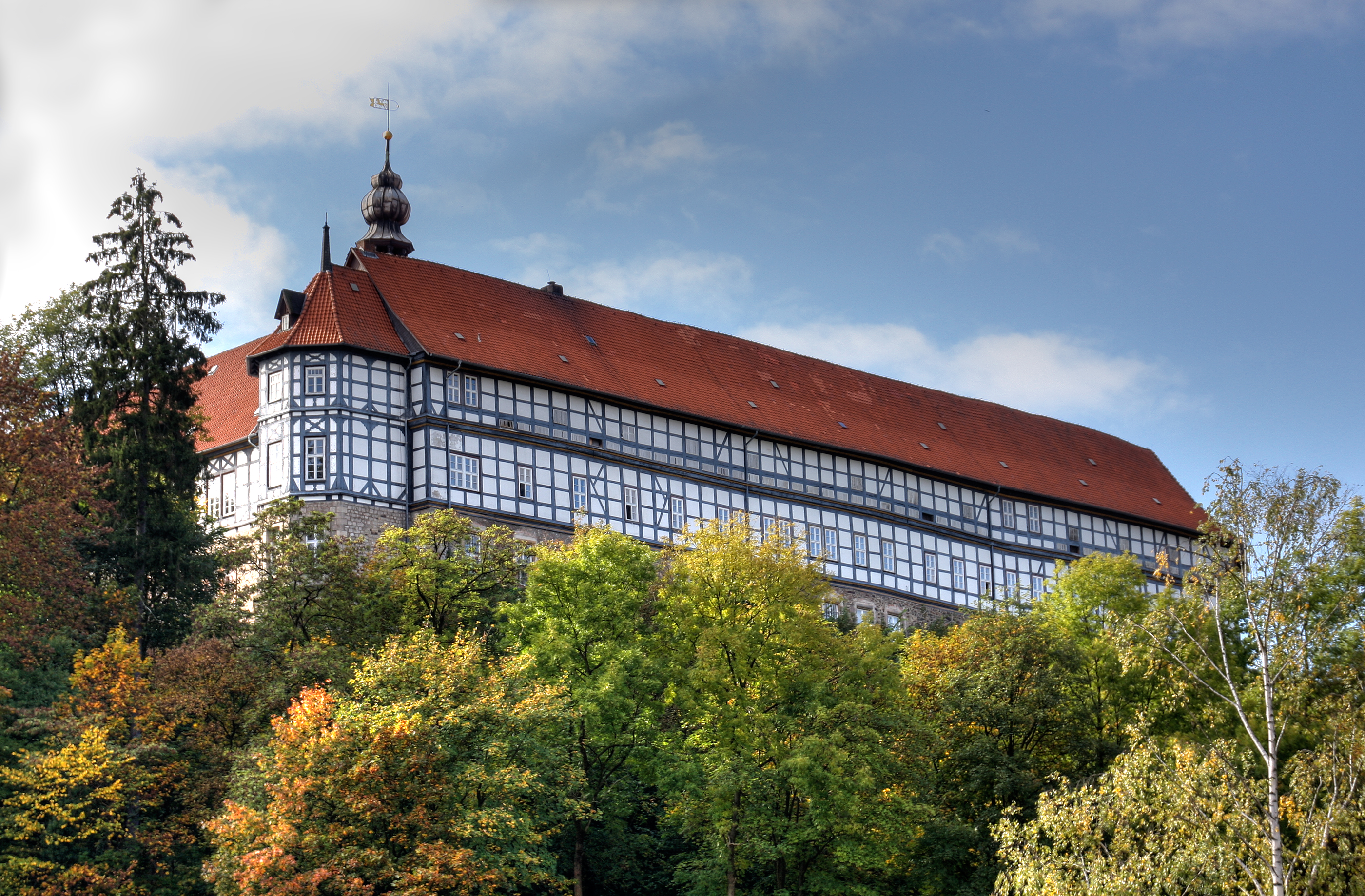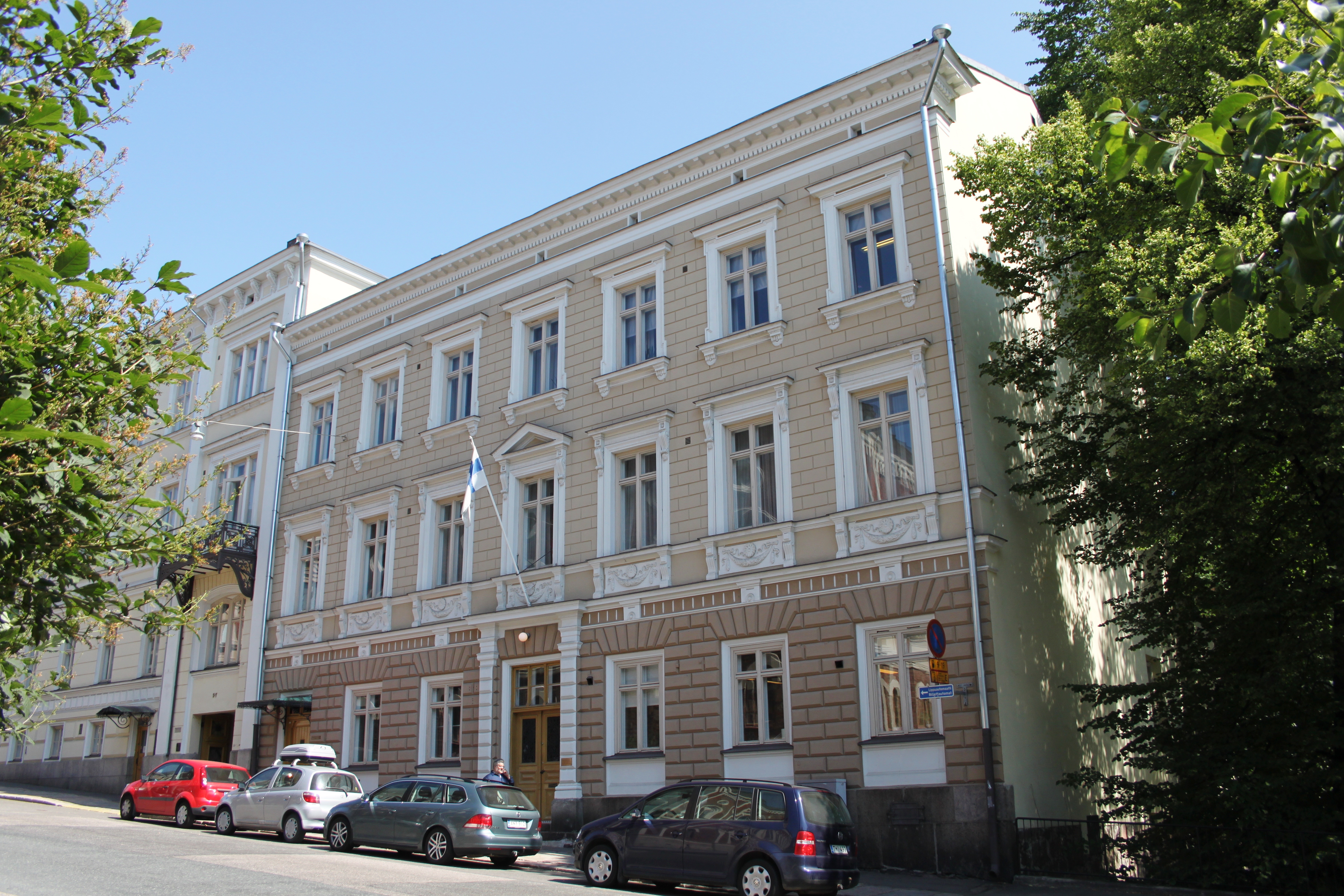|
Hans-Jörg Uther
Hans-Jörg Uther (born 20 July 1944 in Herzberg am Harz) is a German literary scholar and folklorist. Biography Uther studied Folklore, Germanistik and History between 1969 and 1970 at the University of Munich and between 1970 and 1973 at the University of Göttingen. In his last academic year, he passed the first state examination for teaching at grammar schools. In 1971, he began a period of over 40 years working on the ''Enzyklopädie des Märchens'', initially as a student assistant, from 1973 as an editor. In 1980 he became a PhD with the Dissertation "Behinderte in populären Erzählungen" ("The Disabled in Folktales") in Göttingen. From 1990 to 1992 he was a lecturer at the University of Göttingen, and from 1991 to 1994 at the University-Gesamthochschule Essen. In 1994 he gained his Habilitation there in German studies, literature and folklore. From 2000 he was professor extraordinarius for German and literature studies in Essen. Since 2010, Uther has been the head of t ... [...More Info...] [...Related Items...] OR: [Wikipedia] [Google] [Baidu] |
Herzberg Am Harz
Herzberg am Harz is a town in the Göttingen district of Lower Saxony, Germany. Geography Herzberg is situated on the southwestern rim of the Harz mountain range and the Harz National Park. Natural monuments in the surrounding area include the Unicorn Cave, the Karst Trail, and the Rhume Spring. The town centre is located on the Sieber river, about northeast of Göttingen and southeast of the state capital Hanover. The municipal area comprises the villages of Lonau, Pöhlde, Scharzfeld, and Sieber. History Herzberg Castle in the Duchy of Saxony was first mentioned in an 1143 deed. A hunting lodge at the site was already erected from 1024 to 1029 by King Lothair II. It was seized by the Saxon Welf dynasty in 1144 and in 1158 became a property of Duke Henry the Lion with consent of the Hohenstaufen emperor Frederick Barbarossa. The castle was part of the Grubenhagen estates of the Welf duke Henry I of Brunswick he received in 1291, when he and his brothers divided thei ... [...More Info...] [...Related Items...] OR: [Wikipedia] [Google] [Baidu] |
Eugen Diederichs Verlag
Eugen is a masculine given name which may refer to: * Archduke Eugen of Austria (1863–1954), last Habsburg Grandmaster of the Teutonic Order from 1894 to 1923 * Prince Eugen, Duke of Närke (1865–1947), Swedish painter, art collector, and patron of artists * Prince Eugen of Schaumburg-Lippe (1899–1929) * Prince Eugen of Bavaria (1925–1997) * Eugen Bacon, female African-Australian author * Eugen Beza (born 1978), Romanian football manager and former player * Eugen Bleuler (1857–1939), Swiss psychiatrist and eugenicist * Eugen von Böhm-Bawerk (1851–1914), Austrian economist * Eugen Bolz (1881–1945), German politician and member of the anti-Nazi resistance * Eugen Chirnoagă (1891–1965), Romanian chemist * Eugen Cicero (1940–1997), Romanian-German jazz pianist * Eugen Ciucă (1913–2005), Romanian-American artist * Eugen d'Albert (1864–1932), Scottish-born pianist and composer * Eugen Doga (born 1937), Romanian composer from Moldova * Eugen Drewermann (born ... [...More Info...] [...Related Items...] OR: [Wikipedia] [Google] [Baidu] |
University Of Göttingen Faculty
A university () is an institution of higher (or tertiary) education and research which awards academic degrees in several academic disciplines. Universities typically offer both undergraduate and postgraduate programs. In the United States, the designation is reserved for colleges that have a graduate school. The word ''university'' is derived from the Latin ''universitas magistrorum et scholarium'', which roughly means "community of teachers and scholars". The first universities were created in Europe by Catholic Church monks. The University of Bologna (''Università di Bologna''), founded in 1088, is the first university in the sense of: *Being a high degree-awarding institute. *Having independence from the ecclesiastic schools, although conducted by both clergy and non-clergy. *Using the word ''universitas'' (which was coined at its foundation). *Issuing secular and non-secular degrees: grammar, rhetoric, logic, theology, canon law, notarial law.Hunt Janin: "The university ... [...More Info...] [...Related Items...] OR: [Wikipedia] [Google] [Baidu] |
University Of Göttingen Alumni
A university () is an institution of higher (or tertiary) education and research which awards academic degrees in several academic disciplines. Universities typically offer both undergraduate and postgraduate programs. In the United States, the designation is reserved for colleges that have a graduate school. The word ''university'' is derived from the Latin ''universitas magistrorum et scholarium'', which roughly means "community of teachers and scholars". The first universities were created in Europe by Catholic Church monks. The University of Bologna (''Università di Bologna''), founded in 1088, is the first university in the sense of: *Being a high degree-awarding institute. *Having independence from the ecclesiastic schools, although conducted by both clergy and non-clergy. *Using the word ''universitas'' (which was coined at its foundation). *Issuing secular and non-secular degrees: grammar, rhetoric, logic, theology, canon law, notarial law.Hunt Janin: "The university i ... [...More Info...] [...Related Items...] OR: [Wikipedia] [Google] [Baidu] |
Ludwig Maximilian University Of Munich Alumni
Ludwig may refer to: People and fictional characters * Ludwig (given name), including a list of people and fictional characters * Ludwig (surname), including a list of people * Ludwig Ahgren, or simply Ludwig, American YouTube live streamer and content creator Arts and entertainment * ''Ludwig'' (cartoon), a 1977 animated children's series * ''Ludwig'' (film), a 1973 film by Luchino Visconti about Ludwig II of Bavaria * '' Ludwig: Requiem for a Virgin King'', a 1972 film by Hans-Jürgen Syberberg about Ludwig II of Bavaria * "Ludwig", a 1967 song by Al Hirt Other uses * Ludwig (crater), a small lunar impact crater just beyond the eastern limb of the Moon * Ludwig, Missouri, an unincorporated community in the United States * Ludwig Canal, an abandoned canal in southern Germany * Ludwig Drums, an American manufacturer of musical instruments * ''Ludwig'' (ship), a steamer that sank in 1861 after a collision with the '' Stadt Zürich'' See also * Ludewig * Ludvig * Ludwik ... [...More Info...] [...Related Items...] OR: [Wikipedia] [Google] [Baidu] |
Helsinki
Helsinki ( or ; ; sv, Helsingfors, ) is the Capital city, capital, primate city, primate, and List of cities and towns in Finland, most populous city of Finland. Located on the shore of the Gulf of Finland, it is the seat of the region of Uusimaa in southern Finland, and has a population of . The Helsinki urban area, city's urban area has a population of , making it by far the List of urban areas in Finland by population, most populous urban area in Finland as well as the country's most important center for politics, education, finance, culture, and research; while Tampere in the Pirkanmaa region, located to the north from Helsinki, is the second largest urban area in Finland. Helsinki is located north of Tallinn, Estonia, east of Stockholm, Sweden, and west of Saint Petersburg, Russia. It has History of Helsinki, close historical ties with these three cities. Together with the cities of Espoo, Vantaa, and Kauniainen (and surrounding commuter towns, including the eastern ... [...More Info...] [...Related Items...] OR: [Wikipedia] [Google] [Baidu] |
Finnish Academy Of Sciences
The Finnish Academy of Science and Letters (Finnish ''Suomalainen Tiedeakatemia''; Latin ''Academia Scientiarum Fennica'') is a Finnish learned society. It was founded in 1908 and is thus the second oldest academy in Finland. The oldest is the Finnish Society of Sciences and Letters, which was founded in 1838. Members The academy has a total of 328 seats for Finnish members. When a member of the academy turns 65 years, his seat is free for selection of a new member, but he remains a full member until death. The seats are divided into two sections Section of Science * Mathematics and Computer Science 28 members * Physics and Astronomy 26 members * Geosciences 24 members * Chemistry 21 members * Biology 22 members * Agriculture and Forestry 22 members * Medicine 46 members 189 seats Section of the Humanities * Theology and Religion 11 members * Philosophy and Aesthetics 12 members * Psychology and Pedagogy 14 members * History and Archaeology 17 members * Finno-Ugric Studi ... [...More Info...] [...Related Items...] OR: [Wikipedia] [Google] [Baidu] |
Akademie Für Kinder- Und Jugendliteratur
A German Akademie is a school or college, trade school or another educational institution. The word Akademie (unlike the words Gymnasium or Universität) is not protected by law and any school or college may choose to call itself Akademie. A Sommerakademie (Summer Akademie) is a programme that teaches different groups of children or grown-ups usually during the summer month. Sometimes those programmes are remedial in nature. Origin of the word The word Akademie derives from the Platonic Academy, which was located near the bosk of Akademos. D. Sedley, "Academy", in the ''Oxford Classical Dictionary'', 3rd ed.; p. 4, J. Barnes, "Life and Work", in ''The Cambridge Companion to Aristotle'', Cambridge University Press 1995; J. Barnes, "Academy", E. Craig (Ed.), ''Routledge Encyclopedia of Philosophy'', Routledge 1998, accessed 13 Sept 2008, from http://www.rep.routledge.com/article/A001. Examples of Akademies * Akademie deutsches Bäckerhandwerk Weinheim * Akademie für musisch ... [...More Info...] [...Related Items...] OR: [Wikipedia] [Google] [Baidu] |
Grimm's Fairy Tales
''Grimms' Fairy Tales'', originally known as the ''Children's and Household Tales'' (german: Kinder- und Hausmärchen, lead=yes, ), is a German collection of fairy tales by the Grimm brothers or "Brothers Grimm", Jacob and Wilhelm, first published on 20 December 1812. This first edition contained 86 stories, and by the seventh edition in 1857, it had 210 unique fairy tales. It is listed by UNESCO in its Memory of the World Registry. Origin Jacob and Wilhelm Grimm were two of 10 children from Dorothea (''née'' Zimmer) and Philipp Wilhelm Grimm. Philipp was a highly regarded district magistrate in Steinau an der Straße, about from Hanau. Jacob and Wilhelm were sent to school for a classical education once they were of age, while their father was working. They were very hard-working pupils throughout their education. They followed in their father's footsteps and started to pursue a degree in law, and German history. However, in 1796, their father died at the age of 44 from p ... [...More Info...] [...Related Items...] OR: [Wikipedia] [Google] [Baidu] |
Fabula (journal)
''Fabula'' (from lat. ''fabula'': "story, fable") is a multilingual academic journal on comparative folklore studies with a focus on European narratives (such as fairy tales, sagas, and fables). It publishes essays, reviews, and conference reports in German, English, and French. Its subtitle is: ''Zeitschrift für Erzählforschung. Journal of Folktale Studies. Revue d'Etudes sur le Conte Populaire''. Since 1958, the journal has been published bi-annually by De Gruyter and is available in both print and online-editions. It was established by the German scholar Kurt Ranke and is currently edited by Brigitte Bönisch-Brednich, Simone Stiefbold, and Harm-Peer Zimmermann. It is closely connected to the multi-volume work ''Enzyklopädie des Märchens'' ('' Encyclopedia of Fairy Tales'') and is an official journal of the International Society for Folk Narrative Research. From 1959 till 1970 the ''Supplement-Serie A, Texte'' was published. Abstracting and indexing The journal is abstract ... [...More Info...] [...Related Items...] OR: [Wikipedia] [Google] [Baidu] |


